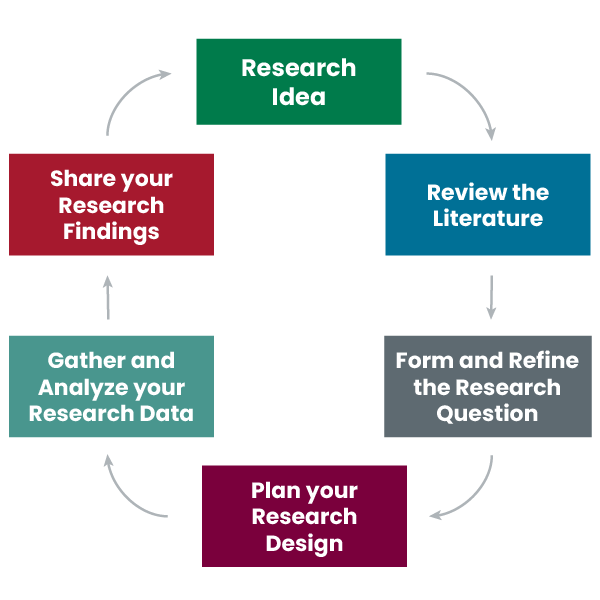One of the goals of the David Braley Primary Care Research Collaborative (PCRC) is to continue to support DFM faculty in developing their research related knowledge and skills. To that end, we have assembled a suite of resources that will support faculty during the development and implementation of a research project.
Using the standard steps of the research process, we have mapped resources to each step starting with when a faculty member has a possible research idea and taking them through the entire research process including sharing what has been learned.
Most of the resources are open access but some might need you to log in with your Mac ID. For questions about your Mac ID and related issues, please email at fmappts@mcmaster.ca

Research Idea
This section provides guidance for researchers to identify their research interests from their clinical practice.
Review the Literature
This section provides guidance on how to conduct a review of writings and other resources on your selected research topics. It is meant to provide guidance on several different review types to answer clinical questions. This is distinguished from describing the epidemiology of a health condition, describing provincial trends, or describing the pathophysiology of a health condition by reviewing published literature, websites or other sources. It also gives an overview of major types/methods of reviewing the literature and how to choose the method that works best for your topic.
Form and Refine the Research Question
This section provides resources on the different types of research questions and tools for forming a good research question.
Plan your Research Design
Research design is a plan to answer your research question. Research methodology is the specific procedures or techniques used to identify/collect, select, process, and analyze information about a topic. Research methods are strategies used to implement the research design.
This section provides an overview of the several different types of research designs categorized into three main types-quantitative, qualitative and mixed-methods.
Gather and Analyze your Research Data
This section provides best practices for gathering, active organization, handling, analyzing and maintaining the data created throughout the research process.
Share your Research Findings
This section includes resources to share your research findings, including publishing in peer-reviewed journals and sharing your findings with different audiences to facilitate change in knowledge, policy, and practice.
Other Resources to Support Your Research
*DFM faculty members can access full text articles from the McMaster Health Sciences Library using your MacID. To request your MacID, or if you’re having issues, please email Faculty Relations at fmappts@mcmaster.ca.
Connect with Us
For support, feedback, or to suggest a resource, email pcrc@mcmaster.ca
